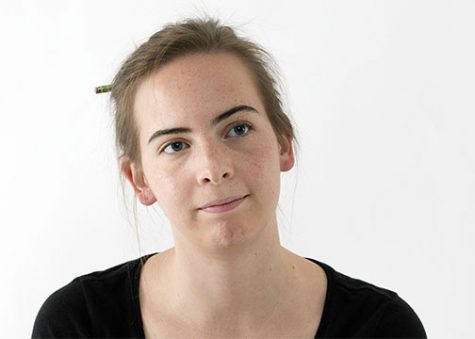Los Angeles-based Jesuit mixes gangsters and God
Homeboy Industries brings gang members closer to God
September 19, 2014
The Rev. Greg Boyle, S.J., known among his homies as “G,” spoke at Loyola Monday night about his experiences working with gang members in Los Angeles.
Boyle shared stories of his 30 years working with gang members in the crime-ridden Boyle Heights neighborhood. He spoke about developing the eight Homeboy Industries businesses, which range from the original Homeboy Bakery to the brand-new Homeboy Food Truck. These businesses train and employ former gang members in order to prepare them to enter the work force.
Over 200 people attended the lecture in the St. Charles Room, where Boyle spoke about compassion and service.
“The measure of our compassion lies not in our service of those on the margins, but in our willingness to see ourselves in kinship with them,” Boyle said.
The Rev. Fred Kammer, S.J., director of the Jesuit Social Research Institute and co-organizer of the lecture, commended Boyle’s empathetic approach.
“It’s the best foundation for working for social justice anywhere,” Kammer said.
Boyle’s empathy has given him deep ties with Homeboy’s trainees and his stories of his relationships with them brought the audience to laughter and to tears.
Boyle shared one story of a kindhearted homie named Mario who, after having suffered the trauma of gang life, found a job through Homeboy Industries. Mario joined Boyle on a speech at Gonzaga University where a woman asked Mario what advice he had for his teenage children.
“I just don’t want my kids to turn out like me,” Mario said.
The woman, who was sobbing, asked Mario why this was the case.
“Why wouldn’t you want your kids to turn out to be like you? You are kind, you are wise, you are loving, you are gentle. I hope your kids turn out to be like you,” she said.
The Gonzaga audience gave Mario a standing ovation.
Boyle’s stories were not all so heartwarming, though. He has buried almost 200 young people who have died due to gang violence.
Naomi Yavneh Klos, director of the University Honors Program and co-organizer of the lecture, described Boyle’s speech as “transformative.”
“It’s Los Angeles, but really, it could be New Orleans,” Yavneh said. “There’s a lot that we can learn from those stories.”
Boyle also commented on Loyola’s Jesuit heritage.
“We are all called to ‘find God in all things’ and to stand where Jesus stood: with the demonized, so that the demonizing will stop,” Boyle said.








Jay Crutti • Sep 24, 2014 at 11:58 am
If anyone wants to see video of his lecture, you can view it here:
http://vimeo.com/106335450